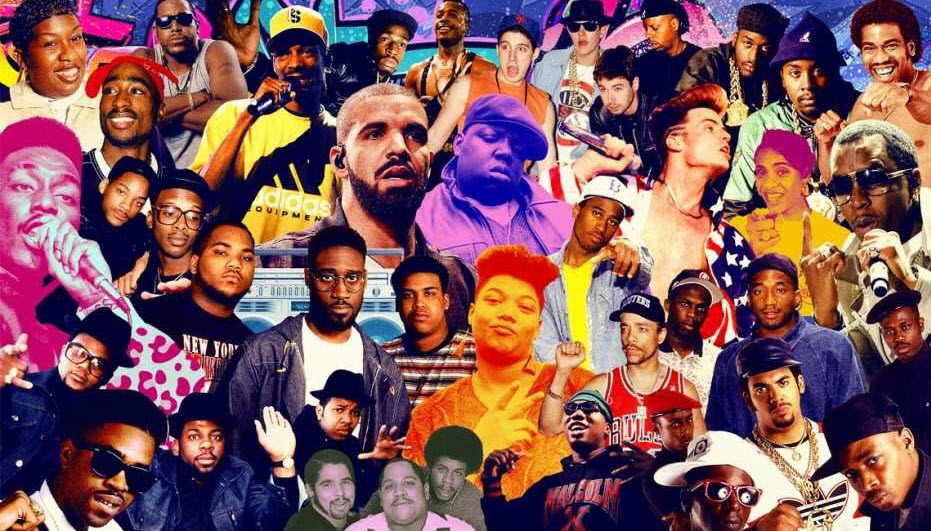In the vast realm of musical expression, few genres have left as indelible a mark on the cultural landscape as rap. As a powerful vehicle for storytelling, social commentary, and self-expression, rap music has transcended its humble beginnings to become a global phenomenon. In this exploration of the “15 Best Rap Songs of All Time,” we embark on a journey through the annals of hip-hop history, tracing the evolution of this dynamic genre and its most iconic moments. From the gritty streets of the Bronx, where it all began, to the glitzy stages of arenas worldwide, rap has emerged as a force that speaks to the pulse of society, capturing the zeitgeist with its rhythm and rhyme.
The selected songs on this curated list not only showcase the immense talent and creativity of the artists behind them but also serve as sonic time capsules, preserving the spirit of their respective eras. Each track has earned its place through a combination of groundbreaking lyricism, innovative production, and an undeniable impact on the genre’s trajectory. So, join us as we delve into the beats, bars, and narratives that have shaped rap music into the cultural juggernaut it is today, celebrating the enduring legacy of the “15 Best Rap Songs of All Time.”
1. The Breaks by Kurtis Blow
“The Breaks” by Kurtis Blow stands as a cornerstone in the history of rap, earning its place among the best rap songs of all time. Released in 1980, it is widely recognized as one of the genre’s pioneering tracks, setting the stage for the emergence of hip-hop as a cultural force. Kurtis Blow, a trailblazing figure in the early rap scene, delivered a charismatic and rhythmically compelling performance that showcased the power of storytelling through rhymes. The song’s infectious beat and catchy lyrics captured the essence of the struggles and triumphs of urban life, resonating with audiences and establishing rap as a legitimate form of artistic expression.
What makes “The Breaks” enduring is its timeless appeal and influence on subsequent generations of rap artists. The song’s clever wordplay, coupled with Kurtis Blow’s dynamic delivery, laid the groundwork for the evolution of rap as a vehicle for social commentary and self-expression. Beyond its commercial success, “The Breaks” remains a cultural touchstone, reflecting the resilience and creativity of the communities that birthed the hip-hop movement. The song’s enduring legacy is a testament to the enduring power of rap as a genre that not only entertains but also serves as a potent medium for storytelling and cultural commentary.
2. Straight Outta Compton by N.W.A.
“Straight Outta Compton” by N.W.A. stands as a groundbreaking anthem that revolutionized the rap genre and left an indelible mark on the cultural landscape. Released in 1988, the track served as the title song for the group’s debut studio album, marking the emergence of West Coast hip-hop onto the global stage. The song’s aggressive and unapologetic lyrics, delivered with raw intensity by members like Ice Cube and Eazy-E, provided a stark portrayal of the harsh realities of life in Compton, California. With its gritty narrative, “Straight Outta Compton” became a powerful voice for marginalized communities, shedding light on issues like police brutality and systemic injustice.
The song’s impact extends far beyond its musical prowess; it ignited debates about censorship and free speech, leading to heightened awareness of the social and political challenges faced by African-American communities. “Straight Outta Compton” not only defined an era but also set a precedent for rap as a platform for socio-political commentary. Its influence reverberates through the works of subsequent artists, shaping the trajectory of hip-hop and cementing N.W.A.’s legacy as pioneers in the rap genre. The song’s unfiltered portrayal of urban life, coupled with its unapologetic delivery, remains a testament to the power of rap music to serve as a voice for the unheard and a catalyst for societal change.
3. It Was a Good Day by Ice Cube
“It Was a Good Day” by Ice Cube is a timeless classic in the realm of rap music, celebrated for its laid-back vibe and vivid storytelling. Released in 1992 as a single from Cube’s third solo album, “The Predator,” the song captures a day in the life of the artist in South Central Los Angeles. What sets this track apart is its departure from the typical narratives of struggle and hardship prevalent in rap at the time. Instead, Ice Cube paints a picture of a day without conflict, where everything falls into place, creating a rare moment of respite in the midst of urban challenges.
The song’s smooth, melodic production, featuring a sample from the Isley Brothers’ “Footsteps in the Dark,” contributes to its enduring appeal. Ice Cube’s narrative skill is on full display as he recounts a series of events that make up his “good day.” Whether shooting hoops, winning at craps, or cruising without any confrontations, the lyrics resonate with listeners for their relatability and the universal desire for moments of peace and joy. “It Was a Good Day” showcases Ice Cube’s versatility as an artist and his ability to convey a positive narrative without compromising the authenticity that defines his work. Decades after its release, the song continues to be celebrated for its storytelling prowess and its ability to capture the essence of a good day in the midst of life’s challenges.
4. Nuthin’ but a G Thang by Dr. Dre
“Nuthin’ but a G Thang” by Dr. Dre is an iconic rap anthem that emerged as a cornerstone of West Coast hip-hop during the early 1990s. Released in 1992 as the lead single from Dr. Dre’s debut solo album, “The Chronic,” the track is a collaboration with fellow rapper Snoop Doggy Dogg, marking the beginning of their legendary musical partnership. The song is celebrated for its laid-back, G-funk sound, characterized by its smooth and melodic production that became a defining element of West Coast rap.
Dr. Dre’s production prowess shines through in “Nuthin’ but a G Thang,” featuring a memorable sample from Leon Haywood’s “I Want’a Do Something Freaky to You.” The infectious groove, coupled with Dre’s signature beats, laid the foundation for a new era in hip-hop production. Snoop Dogg’s smooth and effortless flow complements Dre’s verses, creating a dynamic interplay that adds to the song’s overall appeal. The lyrics provide a glimpse into the artists’ lifestyle, blending tales of success, partying, and musical dominance.
The impact of “Nuthin’ but a G Thang” extends beyond its chart-topping success. It played a pivotal role in shaping the landscape of hip-hop, influencing subsequent generations of artists and solidifying Dr. Dre’s reputation as a producer and innovator. The song’s enduring popularity is a testament to its cultural significance and its role in defining the West Coast sound that continues to resonate in the rap genre today.
5. Juicy by The Notorious B.I.G.
“Juicy” by The Notorious B.I.G. is a seminal track in the history of rap, celebrated for its autobiographical storytelling and the charisma of its iconic performer. Released in 1994 as the lead single from Biggie’s debut album, “Ready to Die,” the song reflects on his journey from rags to riches and the challenges of life in Brooklyn. The track is built around a lush sample of Mtume’s “Juicy Fruit,” creating a melodic and soulful backdrop that contrasts with Biggie’s gritty lyrics.
The impact of “Juicy” extends beyond its musical composition; it marked a shift in the hip-hop landscape. Biggie’s narrative skill and self-reflective lyrics set him apart as a storyteller, blending vulnerability with confidence. The chorus, with its famous line “It was all a dream,” became an anthem of resilience and a symbol of hope for aspiring artists. The success of “Juicy” not only catapulted The Notorious B.I.G. to stardom but also played a pivotal role in bringing East Coast hip-hop back to the forefront of the genre during the mid-1990s.
The song’s enduring legacy lies in its ability to resonate with listeners from diverse backgrounds. “Juicy” remains a cultural touchstone, capturing the essence of the hip-hop dream and the complexities of navigating success in the face of adversity. Its influence is felt in the storytelling traditions of rap, and its status as a classic underscores The Notorious B.I.G.’s lasting impact on the genre.
6. Passin’ Me By by The Pharcyde
“Passin’ Me By” by The Pharcyde is a standout track in the landscape of alternative rap, known for its introspective lyrics, innovative production, and distinctive storytelling. Released in 1992 as part of the group’s debut album, “Bizarre Ride II the Pharcyde,” the song explores themes of unrequited love, missed opportunities, and the bittersweet nature of romantic experiences. The Pharcyde’s unique approach to storytelling and their jazzy, laid-back sound set them apart in the early ’90s hip-hop scene.
One of the notable aspects of “Passin’ Me By” is its unconventional structure. Each member of The Pharcyde—Slimkid3, Imani, Bootie Brown, and Fatlip—takes turns recounting personal stories of romantic encounters gone awry. The honesty and vulnerability in their lyrics resonate with listeners, providing a refreshing departure from the bravado often associated with traditional rap narratives. The production, featuring a sample from Quincy Jones’ “Summer in the City,” contributes to the song’s timeless appeal.
“Passin’ Me By” has left a lasting impact on the genre, influencing subsequent generations of alternative and conscious hip-hop artists. Its success lies in the ability of The Pharcyde to blend relatable storytelling with a distinctive musical style, creating a song that transcends the boundaries of its era. The track’s enduring popularity underscores its significance in the evolution of rap as a platform for diverse narratives and artistic experimentation.
7. I Used to Love H.E.R. by Common
“I Used to Love H.E.R.” by Common is a poetic masterpiece that showcases the artist’s storytelling prowess and his ability to use metaphor and allegory to comment on the evolution of hip-hop. Released in 1994 as part of Common’s album “Resurrection,” the song is a reflection on the changes in the hip-hop industry and culture, personifying hip-hop as a woman and narrating her journey from innocence to commercialization.
Common’s clever wordplay and introspective lyrics make “I Used to Love H.E.R.” a standout in the realm of conscious rap. The track touches on themes of artistic integrity, the impact of commercialization, and the struggle to maintain authenticity in the face of industry pressures. The metaphorical storytelling allows listeners to interpret the narrative on multiple levels, making it a thought-provoking piece that invites reflection on the nature of the rap genre.
The song’s impact goes beyond its musicality; it sparked conversations about the state of hip-hop and its cultural significance. “I Used to Love H.E.R.” is hailed for its social commentary, and it remains relevant as a critique of the commercialization of the genre. Common’s ability to blend deep introspection with a compelling narrative has solidified the track’s place as one of the most thought-provoking and influential songs in the history of rap.
8. C.R.E.A.M. by Wu-Tang Clan
“C.R.E.A.M.” (Cash Rules Everything Around Me) by Wu-Tang Clan is a seminal track that epitomizes the gritty and raw storytelling characteristic of the group. Released in 1993 as part of their debut album “Enter the Wu-Tang (36 Chambers),” the song became an instant classic and is celebrated for its vivid depiction of inner-city struggles and the pursuit of financial success.
The track features a haunting piano riff sampled from The Charmels’ “As Long As I’ve Got You,” creating a moody and atmospheric backdrop for the poignant lyrics. Each member of Wu-Tang Clan, including Inspectah Deck, Raekwon, and Method Man, delivers verses that detail the harsh realities of growing up in impoverished urban environments, emphasizing the importance of financial success in overcoming adversity.
“C.R.E.A.M.” stands out not only for its evocative production but also for its socio-economic commentary. The acronym “C.R.E.A.M.” encapsulates the group’s perspective on the relentless pursuit of wealth in an environment marked by poverty and crime. The song’s impact extends beyond its initial release, influencing subsequent generations of hip-hop artists who appreciate its authenticity and unfiltered portrayal of life’s struggles.
As one of Wu-Tang Clan’s signature tracks, “C.R.E.A.M.” remains a timeless representation of the group’s storytelling prowess and their ability to capture the essence of the streets in their lyrics. The song’s enduring popularity solidifies its place as a cornerstone in the history of rap.
9. Ms. Jackson by OutKast
“Ms. Jackson” by OutKast is a standout hip-hop track that blends soulful melodies with emotionally resonant storytelling. Released in 2000 as a single from their fourth studio album, “Stankonia,” the song is a heartfelt exploration of relationships and the complexities of family dynamics. OutKast, consisting of André 3000 and Big Boi, masterfully combines introspective lyrics with a memorable hook, creating a timeless piece that transcends traditional hip-hop boundaries.
The song’s title refers to Erykah Badu’s mother, to whom André 3000 was romantically involved and shares a child. The lyrics convey a sincere apology and reflection on the challenges of co-parenting, expressing remorse and vulnerability. The emotional weight of the song is heightened by its infectious chorus and the soulful sample from the Brothers Johnson’s “Strawberry Letter 23.”
“Ms. Jackson” achieved commercial success and critical acclaim, earning OutKast a Grammy Award for Best Rap Performance by a Duo or Group. The song’s universal themes of love, regret, and reconciliation resonated with a broad audience, making it one of OutKast’s most iconic tracks.
Beyond its musical achievements, “Ms. Jackson” showcases OutKast’s ability to push the boundaries of hip-hop, incorporating diverse musical elements and addressing personal and relatable subject matter. The song’s enduring popularity is a testament to its emotional depth and the lasting impact of OutKast’s innovative approach to rap music.
10. Still D.R.E. by Dr. Dre
“Still D.R.E.” by Dr. Dre featuring Snoop Dogg is an iconic hip-hop anthem that exemplifies the West Coast sound and the enduring influence of Dr. Dre in the rap industry. Released in 1999 as the lead single from Dre’s second studio album, “2001,” the song marked the producer’s return to the spotlight after a hiatus and solidified his status as a hip-hop legend.
The track’s distinctive piano riff, combined with a powerful beat, creates a timeless and instantly recognizable instrumental. Snoop Dogg’s laid-back delivery complements Dre’s assertive verses, and their chemistry on the track is a testament to their longstanding collaboration. “Still D.R.E.” captures the essence of West Coast hip-hop, blending G-funk elements with Dr. Dre’s signature production style.
The lyrics of “Still D.R.E.” reflect Dr. Dre’s journey to success and his resilience in the face of challenges. The chorus, featuring the memorable line “Still, hittin’ them corners and them ho-hos, girl,” pays homage to Dre’s roots while celebrating his continued relevance in the rap game.
The impact of “Still D.R.E.” extends beyond its initial release; it remains a staple in hip-hop playlists and has been featured in various forms of media. The song’s enduring popularity is a testament to Dr. Dre’s production prowess, Snoop Dogg’s enduring appeal, and the track’s cultural significance in the landscape of rap music.
11. 99 Problems by Jay-Z
“99 Problems” by Jay-Z is a compelling and gritty hip-hop track that stands as a testament to the artist’s storytelling skills and social commentary. Released in 2004 as part of Jay-Z’s “The Black Album,” the song gained widespread acclaim for its raw intensity and its exploration of various societal issues.
The track is characterized by a hard-hitting beat and a sample of Ice-T’s song of the same name. Jay-Z’s lyrics navigate a range of topics, but the central theme revolves around the challenges he faces as a successful black man, including encounters with law enforcement. The chorus, with its famous line “I got 99 problems, but a b***h ain’t one,” adds a layer of irony, using a common hip-hop trope to address more profound social issues.
“99 Problems” gained cultural significance for its commentary on racial profiling and the strained relationship between law enforcement and the black community. The music video, directed by Mark Romanek, further emphasized these themes, depicting a traffic stop and its escalating tensions.
The song’s impact extends beyond its musical and lyrical qualities; it became a cultural touchstone, sparking discussions about race, power, and authority. “99 Problems” is a prime example of Jay-Z’s ability to merge commercial success with thought-provoking content, solidifying his reputation as one of the most influential figures in hip-hop.
12. Lose Yourself by Eminem
“Lose Yourself” by Eminem is a motivational and introspective hip-hop anthem that transcends the genre, capturing the essence of determination and the pursuit of success. Released in 2002 as the lead single from the soundtrack of the film “8 Mile,” in which Eminem starred, the song became an instant classic and earned critical acclaim for its powerful lyrics and emotional delivery.
The track’s production features a haunting piano riff and a driving beat, creating a sense of urgency that complements Eminem’s intense verses. The lyrics delve into the struggles and opportunities that come with the pursuit of a dream, emphasizing the importance of seizing the moment and not letting it slip away. The iconic chorus, with its refrain “You better lose yourself in the music, the moment / You own it, you better never let it go,” resonated with listeners worldwide.
“Lose Yourself” achieved commercial success, topping charts and earning Eminem an Academy Award for Best Original Song in 2003. The song’s impact goes beyond its association with the film; it has become a motivational anthem embraced across various contexts, from sports arenas to graduation ceremonies.
Eminem’s ability to blend personal narrative with universal themes of resilience and determination contributes to the enduring appeal of “Lose Yourself.” The song remains a defining moment in Eminem’s career and a symbol of overcoming obstacles to achieve one’s goals.
13. Empire State of Mind by Jay-Z
“Empire State of Mind” by Jay-Z featuring Alicia Keys is an anthemic celebration of New York City, capturing the spirit and resilience of the Big Apple. Released in 2009 as part of Jay-Z’s album “The Blueprint 3,” the song quickly became a cultural phenomenon and an ode to the city that never sleeps.
The track’s production, with its soulful piano riff and infectious beat, provides a vibrant backdrop for Jay-Z’s verses. Alicia Keys’ powerful vocals in the chorus add a soulful and uplifting dimension, turning the song into an instant classic. The lyrics paint a vivid picture of life in New York, referencing iconic landmarks, neighborhoods, and the diverse experiences that define the city.
“Empire State of Mind” became an anthem for both New Yorkers and enthusiasts of the city, reflecting on its cultural richness and the dreams it inspires. The song achieved commercial success, topping charts and earning critical acclaim. Its impact extends beyond the realm of hip-hop, as it embodies a sense of pride and resilience that resonates universally.
The collaboration between Jay-Z and Alicia Keys resulted in a timeless piece that has left an indelible mark on popular culture. “Empire State of Mind” stands as a testament to the power of music to capture the essence of a place and become a symbol of collective identity.
14. The Message by Grandmaster Flash and the Furious Five
“The Message” by Grandmaster Flash and the Furious Five is a pioneering hip-hop track that marked a significant shift in the genre’s lyrical content. Released in 1982, the song is renowned for its socially conscious lyrics and its reflection on the challenges of urban life in the South Bronx during the early years of hip-hop.
The track features a distinctive beat and electronic sounds, showcasing the innovative production techniques of Grandmaster Flash and his group. However, it is the storytelling prowess of the Furious Five’s rappers—Melle Mel, Duke Bootee, and Scorpio—that elevates “The Message” to iconic status. The lyrics paint a bleak picture of poverty, crime, and systemic issues, providing a raw and unfiltered narrative of the harsh realities faced by inner-city communities.
“The Message” is credited with introducing a more serious and socially aware tone to hip-hop, moving beyond the party-centric themes prevalent in earlier rap songs. The song’s impact goes beyond its musical achievements; it is considered a cultural milestone that inspired subsequent generations of hip-hop artists to use the genre as a platform for social commentary.
Grandmaster Flash and the Furious Five’s “The Message” remains a classic in the hip-hop canon, admired for its authenticity, social relevance, and its role in shaping the evolution of rap as a medium for storytelling and addressing societal issues.
15. Rapper’s Delight by The Sugarhill Gang
“Rapper’s Delight” by The Sugarhill Gang is a landmark in hip-hop history, recognized as one of the genre’s earliest and most influential tracks. Released in 1979, the song is credited as one of the first commercially successful hip-hop singles and played a crucial role in introducing rap music to a wider audience.
The track’s production features a catchy bassline sampled from Chic’s “Good Times” and laid the foundation for the emerging rap genre. The Sugarhill Gang’s rappers—Wonder Mike, Master Gee, and Big Bank Hank—delivered lengthy verses filled with humor, wordplay, and boastful rhymes, showcasing the elements that would become integral to hip-hop culture.
“Rapper’s Delight” is celebrated for its accessibility and party-friendly vibe, making it a crossover hit that reached diverse audiences. Its success helped establish hip-hop as a legitimate and commercially viable genre. The song’s impact is reflected in its enduring popularity and its influence on subsequent generations of hip-hop artists, who often pay homage to its legacy.
As a pioneering track in the history of rap, “Rapper’s Delight” is not only a cultural artifact but also a testament to the genre’s evolution from local street culture to a global phenomenon. The Sugarhill Gang’s contribution to hip-hop with this iconic song remains an essential chapter in the rich and diverse history of the genre.
This post was originally published on this site be sure to check out more of their content.










